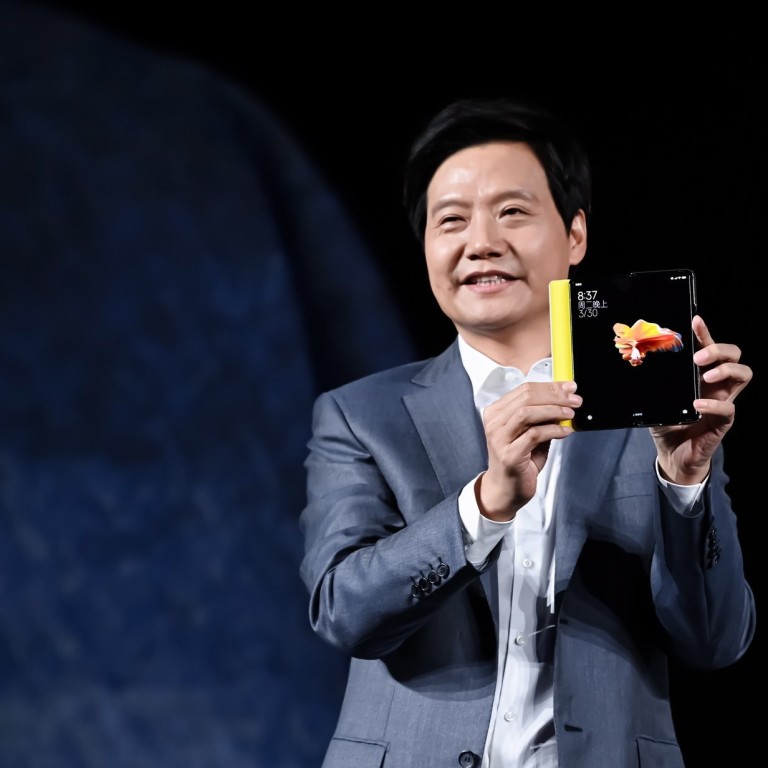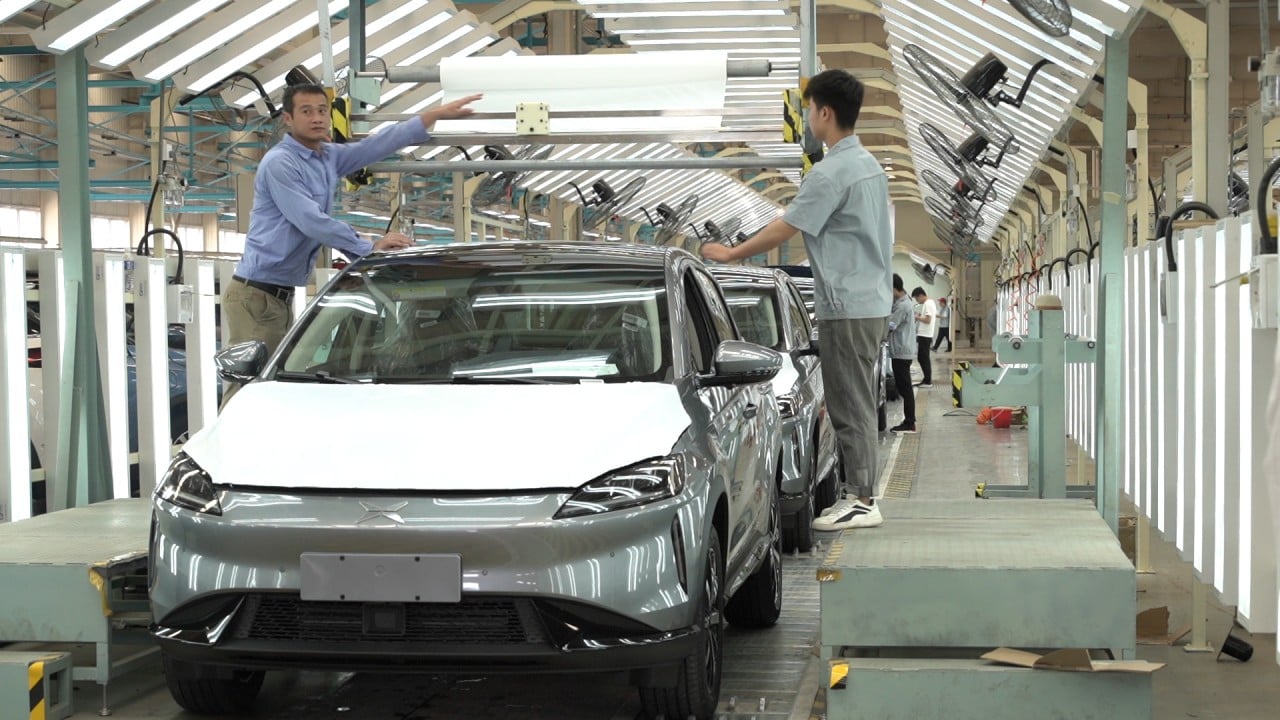
China EV war: Xiaomi boss stakes legacy on pursuit of Tesla as analysts caution latecomers to party
- Xiaomi stock has outperformed rival smartphone makers and Hang Seng Index, while its dollar bonds have returned more than twice its local peers
- Lei Jun, already a successful entrepreneur, will take the lead in the ‘last start-up of his career’, analyst says
Now, the 51-year-old billionaire is staking his legacy on what he described as his final fling with start-up – a money-sapping smart electric vehicle (EV) business. For some analysts, he is also raising the bar with the pursuit of industry leader Tesla and domestic challengers such as NIO and Xpeng.
“Lei Jun, as an entrepreneur with several successful experiences, will take the lead in the last start-up of his career, making this EV plan more ambitious,” said Willer Chen, an analyst at Forsyth Barr Asia in Hong Kong. “Financial-wise, this EV plan is doable for Xiaomi. People have high expectations from it.”
The Beijing-based firm will not be short of cash. It had 108 billion yuan in cash resources at the end of 2020, according to its latest stock exchange filing. Based on its filing, the company expects to spend 10 billion yuan in initial outlay on the EV business, with the outlay snowballing to US$10 billion over the next 10 years.
Chen expects Xiaomi to generate about 20 billion yuan in profit annually, and plough about half of the cash from operations into the EV business. Debt and equity financing could augment that capital commitment, he added.
Its most-active dollar-denominated investment-grade bonds due 2030 have returned 4.6 per cent to investors over the past 12 months, according to Bloomberg data, outclassing a 1.74 per cent advance in a basket of similar-grade dollar bonds sold by Chinese companies in the time.
The market does not need to look far to gauge the potential of the EV market. Under President Xi Jinping’s ambitious carbon-neutrality plan, carbon emissions will need to peak by 2030 and fall to net-zero by 2060.
The country is also the world’s biggest auto market, with about 20 per cent of new vehicles to be powered by clean energy by 2025, or an equivalent of about 4 million cars. UBS Group was more bullish with its forecast for sales of 6.6 million EV units in 2025. Deliveries will rise to 18 million units, or 60 per cent of total new car sales, in 2030.
NIO and Xpeng had record sales in the first quarter this year, both posting a fivefold surge in deliveries. Shanghai-based NIO delivered 20,060 EVs, while Guangzhou-based Xpeng handed 13,340 units over to consumers, according to company filings. Tesla outsells its Chinese rivals by about three to one.
“Xiaomi’s foray into the EV sector will open the door for further growth in the long run,” Shen Dai, an analyst at SPDB International Holdings. “The penetration of EVs is still low and the rate will rise quickly in the future” at a compound annual gain of 11 per cent over 15 years.
The company’s research capability, large-scale supply chain and brand loyalty will give it an edge over other EV makers, he said.
“Xiaomi and Baidu are latecomers, and they have to play catch-up – to have better products that can lure buyers,” said David Zhang, an analyst with the research centre for automobile industry innovation at the North China University of Technology. “If they can churn out right products with reasonable costs, it will probably take them five years to turn their car-making businesses profitable.”
Xiaomi’s shares will probably rise to HK$31.09, implying a 22 per cent upside from the current level, according to estimates by 33 analysts polled by Bloomberg. The company is valued at 29.7 times projected earnings for this year, compared with 30.3 times for Apple and 15.3 for Samsung.
“EVs will give Xiaomi more room for growth” when the smartphone business becomes more competitive, said Fang Jing, an analyst at Cinda Securities. “Its leading position in the online market and a large pool of loyal users will help the company to replicate its success in the EV sector.”
Additional reporting by Daniel Ren and Iris Ouyang



